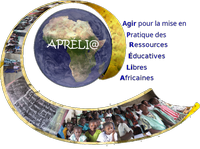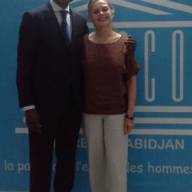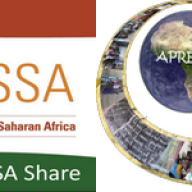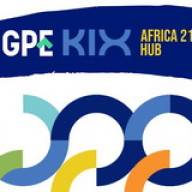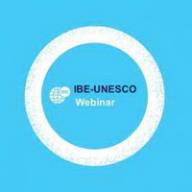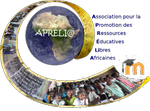Dr. Nkosazana Dlamini Zuma à l'occasion de la Commemoration de la Journée Internationale de la Femme, Addis Abéba, Ethiopie (en anglais)
On the occasion to commemorate the 103rd International Women's Day, I wish to convey my warm greetings and congratulations to women and girls in Africa and all over the world. For over a century, women in successive generations have celebrated this day by benchmarking, mobilising and celebrating our long struggle for gender equality.
African women are a proud and integral component of this global movement, since the days of the anti-slavery, anti-colonial and liberation movements, to today's struggle for Africa's development, peace, integration and prosperity. This ongoing mobilization and organisation of women have been and remain critical, since we continue to hold up half the sky. Emmeline Pankhurst, explained this in 1913, when she declared:
"...we are women fighting for a great idea; that we wish the betterment of the human race, and that we believe this betterment is coming through the emancipation and uplifting of women."
Women today constitute 21.3% of the world's parliamentarians. Rwanda and Andorra are the only two countries in the world where over half of parliaments are women, at 63.8% and 50% respectively. In forty-six (46) countries across the world, women account for more than a quarter (25%) of all MPs. I am also proud to say that fourteen (14) of these countries are in Africa[2]. However, the fact that only two countries globally have 50% women in parliament, means that this struggle for equal representation is far from over.
Sadly, the situation in terms of women's representation in the economy, particularly in the labour market, on boards and in the professions is changing at a much slower pace. Globally, women represent less than 15% of membership of boards in the Fortune 200 companies. At the same time, we know, that most women entrepreneurs are found in the small and micro enterprise sectors and in the informal economy. Although greater numbers of women are entering the labour market, this also tends to be in sectors with poor working conditions and low wages. As we therefore embark on the finalization of our Africa Agenda 2063 framework for the transformation of the continent, we must and will pay attention to women's access to capital and other factors of production such as land, as well as ensuring that our infrastructure development, industrial development, job creation and promotion of intra-Africa trade are gender sensitive and seek to empower African women.
The 2013 Gender Gap Report of the World Economic Forum indicates that globally, on health and education, progress is being made in closing the gap in health outcomes and educational attainment between men and women. However, according to the report, the gap between women and men on economic participation and political empowerment remains wide[3].
On educational attainment, African countries are making progress in closing the gender gap, especially with regards to the participation of girls and young women in education (primary, secondary and higher education levels). There are, however, countries that are not doing that well and we must look at ways to work with them to ensure that African girls and women are an integral part of the human capital strategy for continental transformation.
Similarly, on health, the life expectancy of African women is rising, but we must address with greater vigor the burden of disease; maternal, infant and child mortality and general access to health services, good nutrition, water and sanitation.
2014 is the African Year of Agriculture and Food Security and, therefore a critical year for African women in the struggle for emancipation. Agriculture is a key driver for economic transformation, since Africa still has up to 60% of the world's unused arable land. Women constitute over three quarters of the agricultural workforce and play a major role in food production, and increasingly in domestic and cross-border trade. Yet they own less than 1% of the land, and their access to assets, capital and infrastructure are limited.
In this year of Agriculture and Food Security, for Africa to move towards a situation where we can feed ourselves and eliminate hunger, for our agricultural sector to contribute towards economic transformation by eliminating the need for food imports, for our agribusinesses to become a major exporter of value-added goods, we must and will invest in practical ways in which women (and young people) can drive Africa's agrarian revolution. An example of some of these practical ways is the suggestion by Nigeria that we advocate and engage banks and financial institutions to earmark 30% of their agricultural lending for women, so as to double the current level of women's access to capital, which is only 15% of all loans.
As we celebrate the 103rd International Women's Day this year, the world and Africa are moving towards finalising the post-2015 development agenda. We have made progress through the millennium development goals, but for Africa the greatest lesson learnt was that these goals could not be met fully, without transformation. That is why we have made transformation as the foundation of the Common African Position on the post-2015 development agenda. Part of this transformation agenda is the mainstreaming of gender and women's empowerment throughout all pillars and goals of the development agenda, with specific goals on gender equality and women's empowerment.
Whether this becomes the global consensus or not, African transformation will not be possible without the empowerment of women, and our Agenda 2063 will therefore ensure that sufficient attention is given to this.
Finally, we have stressed time and time again that there can be no development without peace, and no peace without development. Last year we pledged that by 2020 we shall silence all the guns. And yet, in Southern Sudan and the Central African Republic, we have situations where women and children once more are the main victims of conflict.
Last, but not least, I must reiterate our concern about the continued high levels of violence against women and urge governments to ensure protection for women, as well as creating adequate and responsive mechanisms and legal frameworks in which women can freely and respectably report violence and seek redress.
As we therefore strategise how to silence the guns and ensure the human security of all, we know that the inclusion of women in political structures, in security sector reform, in peacemaking, conflict resolution and post-conflict reconstruction is critical. It is for this reason that we announced to the January 2014 Summit, the appointment of a Special Envoy on Women, Peace and Security, to ensure that we have a more proactive approach towards mobilizing women into a powerful movement for peace and development on the continent.
On this day, I would like to congratulate African women and women of the world for the progress made and encourage men and women to continue empowering our girls and boys and our young women and men. They are our future.
Finally, I would like to welcome the exemplary initiative Matteo Renzi, Prime Minister of Italy has taken by appointing Eight Women and Eight men to his cabinet.
I wish you all a happy Women's Day, and aluta continua.
